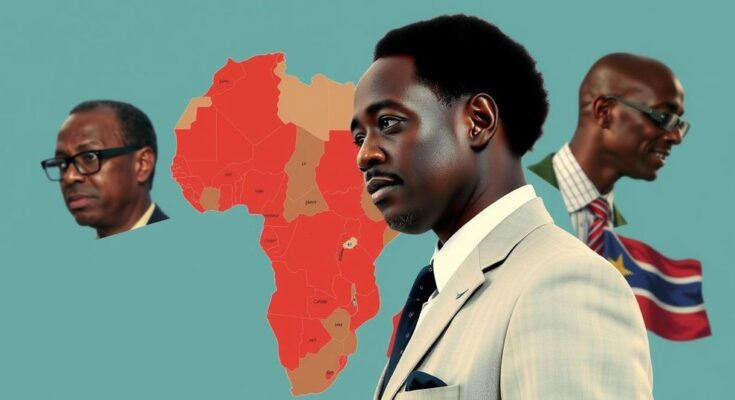The 2024 elections in Southern Africa resulted in major political shifts as long-ruling liberation parties faced significant electoral defeats, particularly in Botswana and South Africa. Economic struggles, rising youth dissatisfaction, and a generational change in voter priorities led to these outcomes, marking a potential start of a new political era in the region. Across several countries, voters increasingly demand accountability and effective governance, reshaping the political landscape.
In 2024, major elections across Southern Africa marked a significant shift in the political landscape, with traditional ruling parties facing unprecedented challenges. Countries like Botswana and South Africa notably experienced the loss of power by their long-standing liberation parties as they grappled with economic issues and rising youth discontent. The changes observed were partly attributed to a generational shift, wherein younger voters prioritized government performance over historical credentials tied to liberation struggles.
Botswana’s election was particularly startling; the ruling Botswana Democratic Party, in place since independence in 1966, was ousted amid economic troubles linked to the diamond mining sector. Opposition celebrations followed an early concession of defeat by President Mokgweetsi Masisi. Similarly, in South Africa, the African National Congress (ANC) suffered a historic drop in support, compelled to share power for the first time since apartheid’s end, reflecting widespread disillusionment over governance and corruption.
Namibia, while retaining its long-governing South West Africa People’s Organization (SWAPO), saw a narrow victory, marking its worst parliamentary performance since independence. This signaled potential changes in political dynamics within the country. Concurrently, Mozambique’s electoral outcomes led to deadly protests, challenging public trust in established government structures.
The trends were echoed in other regions of Africa; the successful electoral movements in countries like Mauritius and Senegal also resonated with a continental pattern of discontent and calls for accountability. Voter participation and enthusiasm among the youth are reshaping the political discourse, urging long-time rulers to adapt to new expectations or risk losing power.
The elections of 2024 in Southern Africa unfolded against a backdrop of relative political stability compared to the broader African context, characterized by military coups and civil unrest. However, the long history of liberation parties, which had dominated the region’s political narrative following colonialism, faced renewed scrutiny as economic challenges intensified. Younger voters, indifferent to the historical context of these parties, are increasingly demanding effectiveness and accountability, prompting a significant reevaluation of party politics in the region.
The political landscape of Southern Africa in 2024 reflects a critical transition as traditional ruling parties confront significant electoral challenges. The loss of long-standing power by the Botswana Democratic Party and the ANC in South Africa illustrates a growing electorate that prioritizes current governance issues over historical narratives. The emergence of a politically awakened younger generation will likely continue to influence political outcomes, ensuring that government performance remains at the forefront of public expectations.
Original Source: apnews.com




